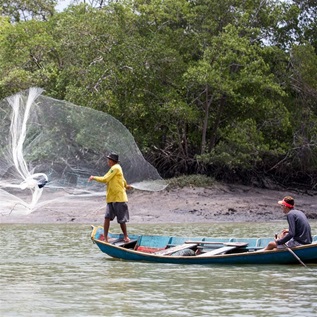9 Pew-Supported Scientists Named 2014 AAAS Fellows
Nine scientists who received support from The Pew Charitable Trusts’ biomedical and environmental scholars programs have been elected into the 2014 class of Fellows of the American Association for the Advancement of Science. The AAAS fellows are selected based on their demonstrated efforts to advance science or its applications.
Among the 401 new fellows selected, eight were Pew scholars in the biomedical sciences: Alan Aderem (’86), Marnie Halpern (’95), Karen Mohlke (’06), Michael Snyder (’87), William Talbot (’98), Mark Winey (’93), Margaret Kielian (’88), and Charles Zuker (’88). 1990 Pew scholar in the environment John Harte was also elected into the 2014 class.
AAAS is an international nonprofit organization dedicated to advancing science for the benefit of society. Since 1874, the organization has annually named fellows who represent fields ranging from neuroscience to atmospheric science to linguistics.
Learn more about Pew’s support of biomedical and environmental research.
Related Links
- Carnegie's Marnie Halpern named AAAS Fellow
- Six UNC-Chapel Hill scientists elected AAAS fellows
- Five Stanford professors named fellows of American Association for the Advancement of Science
- Sixteen GSA members elected as 2014 AAAS Fellows
- Six Faculty Members at Albert Einstein College of Medicine Named 2014 AAAS Fellows
- New AAAS Fellows Include Four from Columbia P&S
- Prof. John Harte Named AAAS Fellow











